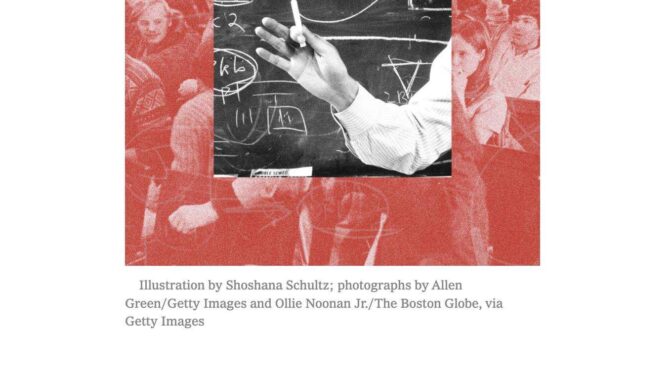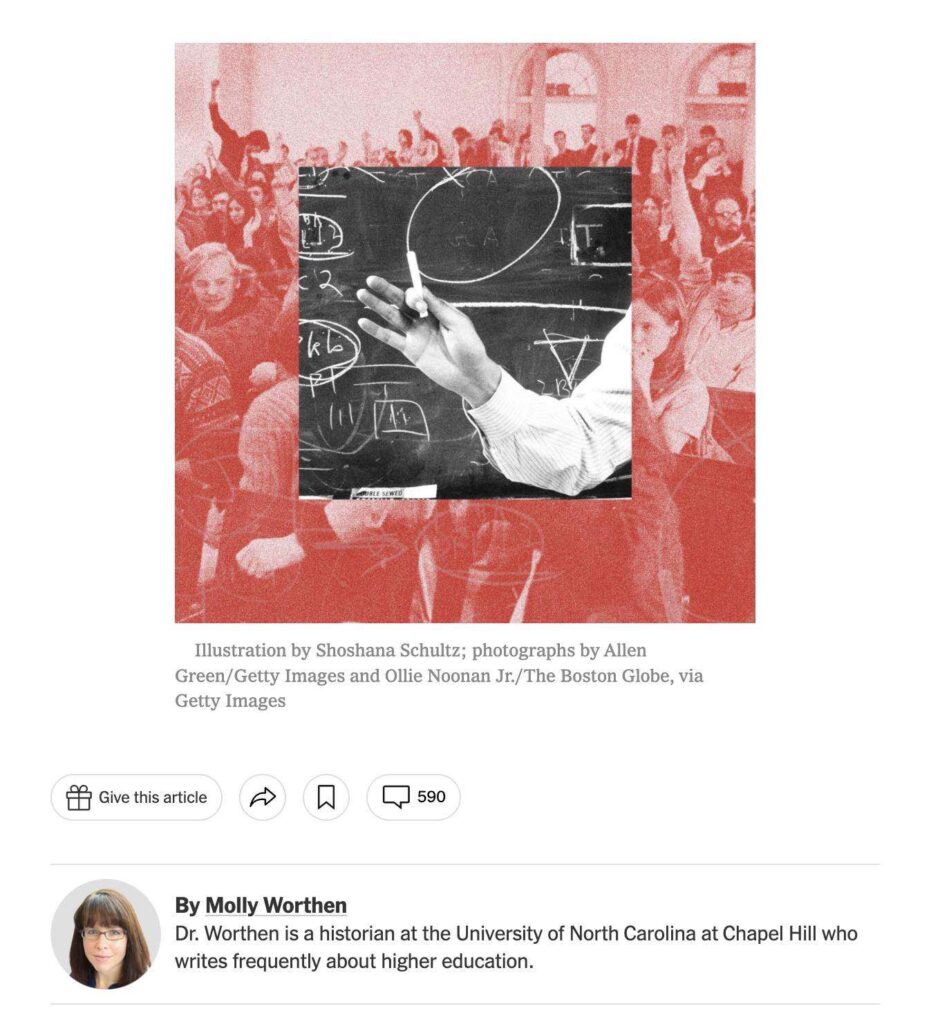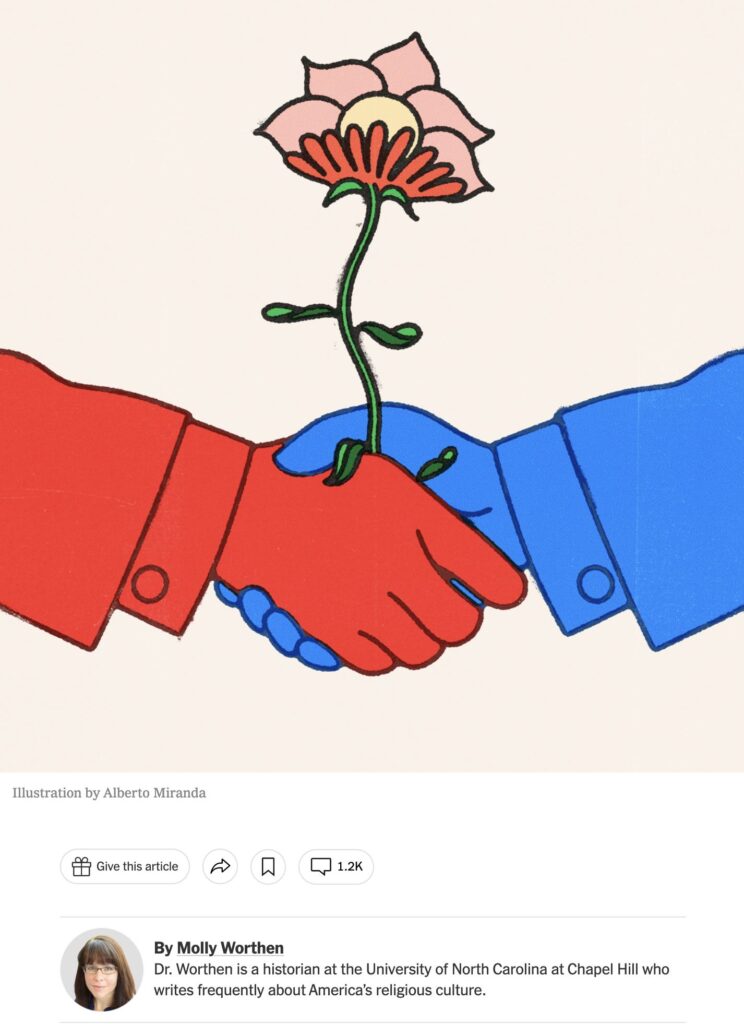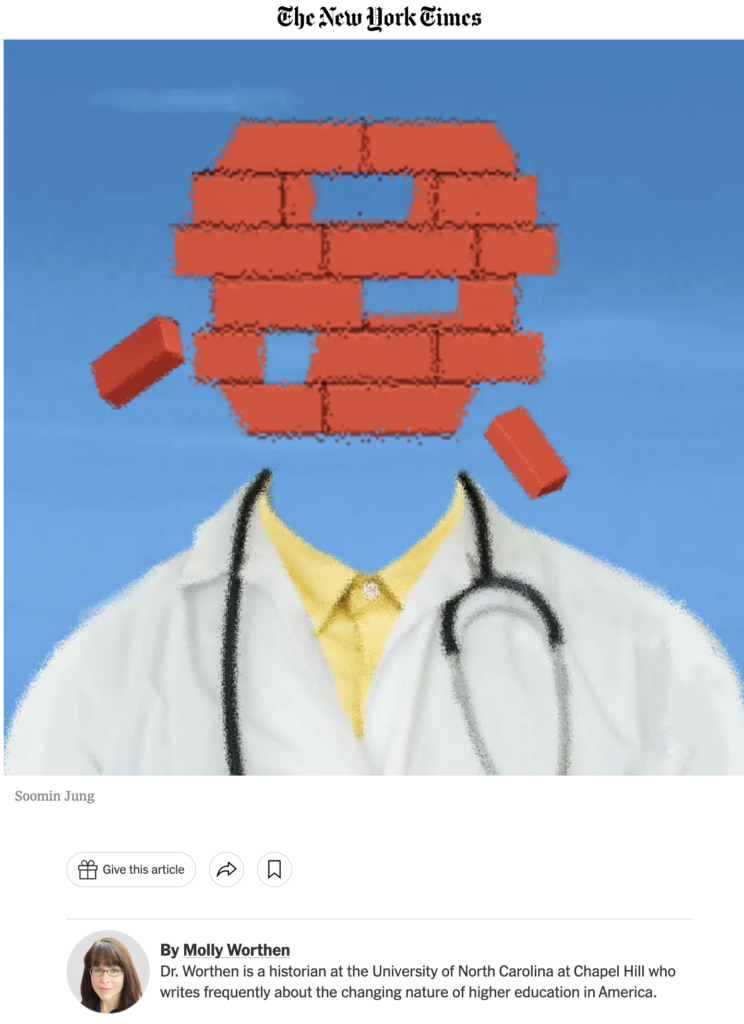Why should universities guarantee jobs to a bunch of elitists who study esoteric subjects and brainwash students with left-wing politics? This critique of tenure in higher education is as old as tenure itself, and it’s gaining ground. In recent years, governing boards and legislators in several states have attempted to ban tenure or curtail its power — sometimes succeeding, as in Wisconsin. In the American labor market, where employers have unusually wide latitude to hire and fire at will, it’s not hard for politicians to channel popular resentment toward a small class of workers with relatively strong protections.
That class is getting even smaller. The proportion of American faculty members on the tenure track has been falling since the 1970s, and today just a third of college professors have tenure or are on track to receive it. Every year more and more teachers join the ranks of contingent faculty members, surviving contract to contract with little hope that these debates will ever apply to them.
Over the years, tenure’s defenders have offered up noble pleas for the system. It does not grant a teacher a job for life but simply protection from arbitrary firing and retribution; it safeguards academic freedom; it decreases turnover and creates a more stable learning environment for students; it’s more cost-effective than critics suggest, especially when compared with how much universities spend on new administrative positions and lavish student facilities.
All these arguments are basically right. But they will never persuade tenure skeptics outside the university. That’s because the fight over tenure is not really about tenure. It’s a proxy for a larger debate about the meaning of academic freedom and the priorities of higher education. These are intractable battles in the culture wars, but universities are not helpless to confront them — as long as they grapple with the real problems in the tenure system and academic culture.
Image credit: Shoshana Schultz




